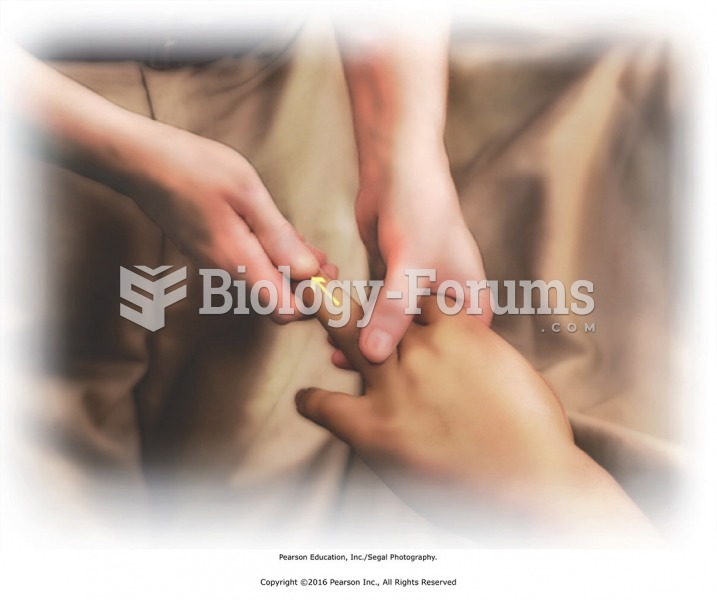|
|
|
Pope Sylvester II tried to introduce Arabic numbers into Europe between the years 999 and 1003, but their use did not catch on for a few more centuries, and Roman numerals continued to be the primary number system.
A strange skin disease referred to as Morgellons has occurred in the southern United States and in California. Symptoms include slowly healing sores, joint pain, persistent fatigue, and a sensation of things crawling through the skin. Another symptom is strange-looking, threadlike extrusions coming out of the skin.
Glaucoma is a leading cause of blindness. As of yet, there is no cure. Everyone is at risk, and there may be no warning signs. It is six to eight times more common in African Americans than in whites. The best and most effective way to detect glaucoma is to receive a dilated eye examination.
The term bacteria was devised in the 19th century by German biologist Ferdinand Cohn. He based it on the Greek word "bakterion" meaning a small rod or staff. Cohn is considered to be the father of modern bacteriology.
The immune system needs 9.5 hours of sleep in total darkness to recharge completely.
 Stripping is performed with deep pressure along the length of a muscle to its attachment. Parallel ...
Stripping is performed with deep pressure along the length of a muscle to its attachment. Parallel ...
 Lightly squeeze along each finger applying pressure first near the knuckle and then moving along the ...
Lightly squeeze along each finger applying pressure first near the knuckle and then moving along the ...





